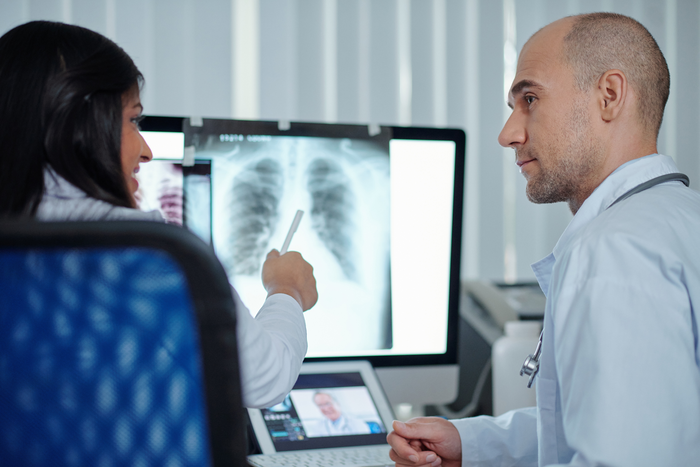Pioneering artificial intelligence (AI) which automatically diagnoses lung diseases – such as tuberculosis and pneumonia – could ease winter pressures on hospitals, University of the West of Scotland researchers believe.

Credit: N/A
Pioneering artificial intelligence (AI) which automatically diagnoses lung diseases – such as tuberculosis and pneumonia – could ease winter pressures on hospitals, University of the West of Scotland researchers believe.
Tuberculosis and pneumonia – potentially serious infections which mainly affect the lungs –often require a combination of different diagnostic tests,– such as CT scans, blood tests, X-rays, and ultrasounds. These tests can be expensive, with often lengthy waiting times for results.
Developed by UWS, the revolutionary technology – originally created to quickly detect Covid-19 from X-ray images – has been proven to automatically identify a range of different lung diseases in a matter of minutes, with around 98 per cent accuracy.
UWS researcher Professor Naeem Ramzan said: “Systems such as this could prove to be crucial for busy medical teams worldwide.”
It is hoped that the technology can be used to help relieve strain on pressured hospital departments through the quick and accurate detection of disease – freeing up radiographers continuously in high demand; reducing waiting times for test results; and creating efficiencies within the testing process.
Professor Ramzan, Director of the Affective and Human Computing for SMART Environments Research Centre at UWS, led the development of the technology, along with UWS PhD students Gabriel Okolo and Dr Stamos Katsigiannis.
Professor Ramzan added: “There is no doubt that hospital departments across the globe are under pressure and the outbreak of Covid-19 exacerbated this, adding further strain to pressured departments and staff. There is a real need for technology that can help ease some of these pressures and detect a range of different diseases quickly and accurately, helping free up valuable staff time.
“X-ray imaging is a relatively cheap and accessible diagnostic tool that already assists in the diagnosis of various conditions, including pneumonia, tuberculosis and Covid-19. Recent advances in AI have made automated diagnosis using chest X-ray scans a very real prospect in medical settings.”
The state-of-the-art technique utilises X-ray technology, comparing scans to a database of thousands of images from patients with pneumonia, tuberculosis and covid. It then uses a process known as deep convolutional neural network – an algorithm typically used to analyse visual imagery – to make a diagnosis.
During an extensive testing phase, the technique proved to be 98 pre cent accurate.
Professor Milan Radosavljevic, UWS’s Vice-Principal of Research, Innovation and Engagement, said: “Hospitals around the world are under sustained stress. This can be seen throughout the UK, as our fantastic NHS continues to undergo immense pressure, with hard-pressed medical staff bearing the brunt.
“I am excited about the potential of this innovative technology, which could help streamline diagnostic processes and reduce strain on staff.
“It’s another example of purposeful, impactful research at UWS, as we strive to find solutions to global challenges.”
Researchers at UWS are now exploring the suitability of the technology in detecting other diseases using X-ray images, such as cancer.
Journal
Computer Methods and Programs in Biomedicine
DOI
10.1016/j.cmpb.2022.107141
Method of Research
Computational simulation/modeling
Subject of Research
Not applicable
Article Title
IEViT: An enhanced vision transformer architecture for chest X-ray image classification
Article Publication Date
1-Nov-2022




